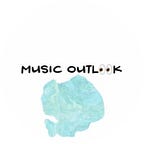Review: Mac Miller — Swimming (The validity of posthumous celebration)
Swimming, the latest and last release from artist Mac Miller. What do I think of it? I’m not sure it’s hard to say. Formulating a concise opinion of this album has been difficult given the fog cloud of hype circulating it. Reading other reviews didn’t help either; it just made everything more confusing for me. Is it an evolution of his musical style? Is it a cry for help? Or is it indeed a suicide note? Any answer to these questions would be shameless speculation. What it is, as rolling stone noted, is “vague and unfocused”. But that is not necessarily a bad thing.
Personally, I’m not a fan of this middle class/frat-rap feel of hip-hop music. Perhaps I find it difficult to relate to. What I can appreciate is the fragility Mac Miller shows in this album. As a personal attestation to a troubled life, I cannot fault him on wanting to express his emotion. There is definitely something morbidly charming about his angst. I imagine these sort of emotions would be easily accessible and relatable to his fan base. Where I come from, drug and alcohol abuse results in far more detrimental things than more excess. But that’s a discussion for a different column. The elements of the album that are rubbing me warm though are the beats. The alternative soul mixed with acid jazz backtracks really have gotten into my bones, and I find myself dancing in my seat. But mostly because it sounds familiar. The funky melodies remind me of Kendrick Lamar’s To Pimp a Butterfly and Jamiroquai’s 90’s and early 2000’s hits. But none of it sounds new to me. And admittedly, this is a problem I have with most modern music. Nothing feels new anymore, just a reinterpretation of a reinterpretation.
Despite this, Swimming is regarded as Mac Millers best album. And I can see why; it’s funky, it feels good, but at the same time it attempts to bring his personal problems home to the listener. I can see why it would be considered a suicide note or a cry for help. I can see how this could have been an evolution of his musical style too. And for his first committed attempt at it, after his experimentation in the Divine Feminine, I am impressed. Although I feel like it lacks texture. It lacks a personal identification of the artist. Despite his deeply personal lyrics conveying his vulnerability and pain, it feels generic. I feel musical artists are making a habit of this lately. Good but generic is my impression. It doesn’t feel innovative. It feels like a good reflection of musical trends, released at the right time.
I was reluctant to listen to this album, given the hype around Mac Miller after his break-up with Ariana Grande and then his death in September of 2018 (accidental overdose). Social media was awash with the (characteristic) post-mortem glorification of the public figure. The romanticism around their deaths seems to inflate the influence these figures had on the posters personal lives, all in the name of hype. There were teenagers talking about how crushing a loss Maya Angelou’s death was in their lives, when none of them knew why the caged bird sang, or how tragic it was when Mohammed Ali passed but didn’t understand why the caterpillar Cassius cocooned Clay, and what impact the metamorphosis of the floating Butterfly Ali had on African American culture as a whole. Some reported, after the death of George Michael, that Sam Smith would have to fill his shoes. What blasphemy??
Tweets generated after Mac-Miller died compared him to Kurt Cobain, Jim Morrison, even Biggie and Tupac. In all honesty, this infuriated me, because we are talking about idols here. Not popular artists. At the time, all I had ringing in my head was; “At least it’s not HOV”. “Dick move”, I know. But is it too much to ask that we give legends a little more respect than artists who were just contemporarily popular? Or at least not recycle the same hashtag’s to convey our apparent “devastation” for our “personal loss”? We’ve fabricated emotion for trends, and it leaves us without texture.
And this is what happened with this album. Whether it was a new artistic route, a cry for help, or a suicide note; it lacked texture. It lacked certain grit that would truly personalize any of those expressions. It was a collage of easily digestible sounds and easily relatable struggle. It had all the potential to be truly great, but it seemed engineered to sell, not come alive.
